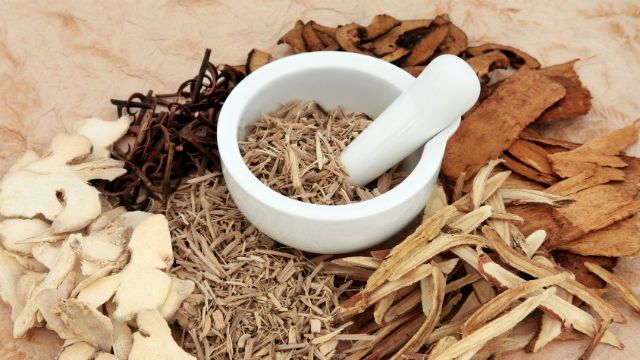
Astragalus is a type of herb that has been consumed in traditional Chinese medicine since ancient times. It offers many reported health benefits, including anti-aging, immune-boosting, and anti-inflammatory properties.
Many people believe that astragalus can prolong life as it is used in treating a wide range of ailments such as allergies, fatigue, and the common cold. It is also said to contain properties to help against diabetes, heart disease, and other conditions.
In this post, let’s take a look at astragalus and understand what this herb has to offer.

Astragalus, also called milkvetch or huang qi, is an herb that is commonly used in traditional Chinese medicine. Although there are more than two thousand species of the plant, only two are mainly used in astragalus supplements.
The root of the plant is specifically used and made into various forms of supplements, including teas, powders, capsules, and liquid extracts. Astragalus is sometimes applied as an injection in a healthcare setting.
There are many active compounds present in its roots that experts believe are responsible for its purported health benefits. For instance, its active compounds are believed to enhance immune function and lower inflammation.
Although the research on astragalus is quite limited, it has long been used to treat common colds, allergies, kidney disease, heart conditions, chronic fatigue, and more due to its effects.
There are beneficial plant compounds present in astragalus that could improve the immune system. The main role of our immune system is to protect the body against harmful bacteria, viruses, and germs that can cause illnesses.
Some evidence points toward astragalus being capable of increasing white blood cell production in the body. These white blood cells are an essential response in preventing diseases.

In animal studies, roots of the astragalus plant has been observed to help in eliminating viruses and bacteria in infected mice.
Although the research may be limited, it could also be used to fight viral infections in human beings, including infection of the liver and the common cold.
Despite these studies may appear promising, more research is necessary in order to determine its effectiveness in treating and preventing infections.
There are indications that astragalus may benefit heart function, especially in people who have certain cardiovascular conditions. It is believed that the plant can widen blood vessels and improve the amount of blood that goes through the heart.
In one study, patients suffering from heart failure were given 2.25 grams of astragalus twice each day for two weeks together with standard treatment. The subjects were found to experience better improvements in cardiovascular function compared to those who received conventional treatment.

Another study pointed out that patients with heart failure were given 60 grams of astragalus per day via intravenous together with standard treatment. The subjects were also observed to have better improvements in their symptoms compared to those who were given regular treatment only.
Additionally, other studies have suggested that astragalus could lower symptoms of myocarditis, which is an inflammatory heart condition. However, the findings appear to be of mixed results.
There are plenty of negative side effects when undergoing chemotherapy. Based on some studies, astragalus could benefit patients by alleviating these effects.
For instance, one study showed that people who underwent chemotherapy found astragalus to be capable of reducing nausea, diarrhea, and vomiting. Other studies have also demonstrated the benefits that the herb has to offer. Researchers found that it helped ease vomiting and nausea for individuals who had chemotherapy for colon cancer.

In a 2012 study, taking 500mg of astragalus intravenously three times per week may help with extreme fatigue that is associated with chemotherapy. However, the findings revealed that astragalus was only effective during its first week of treatment.
Astragalus root has active plant compounds that could be beneficial in lowering blood sugar in people with type 2 diabetes. In fact, it has been found to be one of the most used herbs in helping manage diabetes in China.
In studies concerning animal and test-tube samples, astragalus was found to enhance sugar metabolism while reducing blood sugar levels. In another animal study, it also resulted in weight loss for the subjects.

Although more data is required, the studies on human subjects have proven to have the same effects. For instance, studies revealed that consuming 40 to 60 grams of astragalus each day could potentially enhance blood sugar levels after fasting in people who have type 2 diabetes. The study was conducted for four months on the test subjects who took astragalus daily.
There are signs that show astragalus to support kidney health. Researchers believe it can improve blood flow including overall kidney function.
Proteinuria, a condition wherein unusual amounts of protein are present in urine, is one of the signs that the kidney could be damaged. It could also be because the organ is no longer functioning normally.
Scientists learned that astragalus may improve proteinuria based on studies involving people with kidney disease. It is also possible that the plant may prevent infections in people who have reduced kidney function.
Additionally, astragalus was found to reduce the risk of infection by 38% in people who had a kidney disorder known as nephrotic syndrome. However, additional studies are required to confirm these results.
Astragalus has long been used in treating chronic asthma and was found to be a successful supplemental therapy against it. Once treated, subjects experienced decreased airway hypersensitivity and reduced mucus production. By potentially reducing asthma attacks, people may be relieved of their chronic asthma problems.

There is also evidence pointing towards astragalus successfully:
Due to the anti-inflammatory properties of astragalus, the plant has long been used as a treatment for wounds. The dried roots of the plant have been incorporated in traditional Chinese medicine for many years in helping heal injured muscles and organs.

In one study, wounds that were treated with astragalus showed better recovery rates over 48 to 96 hours of observation. The researchers concluded that the plant appears to be a promising natural product for improving healing in wounds.
Several screenings have revealed the success of astragalus saponins, polysaccharides, and flavonoids in reducing or eliminating tumours. Astragalus has also been shown to have the potential to reverse multidrug resistance.
Oxidation caused by damage from free radicals is the main component of aging and diseases. Several elements present in the astragalus plant have been found to prevent oxidative stress and combat free radical damage.
The astragalus polysaccharides present in the herb provide positive effects on immune function. It has also been observed to have beneficial effects on the brain, which could lengthen a person’s lifespan.
Since astragalus appears to have antiviral properties, people have been using the herb to treat conditions such as the common colds and flu. It is often applied together with other herbs like licorice and ginseng.

Just like many natural remedies for colds, it appears to work best when applied on healthy individuals regularly to prevent the illness before its onset. Adding astragalus as part of a daily regimen can be beneficial to people especially during the winter months when the flu is common.
Besides the studies that were mentioned earlier, there are other possible health benefits of astragalus, which include:
For most individuals, consuming astragalus has been found to be tolerated well. Minor side effects were however reported in some studies. Rashes, itchiness, runny nose, diarrhea, and nausea were some of these effects.
When applied intravenously, astragalus may result in serious side effects, such as abnormal heartbeat. That is why it is essential that astragalus IV should only be administered under expert medical supervision.
Although astragalus is safe for most individuals, these people should try and avoid it:
It is also possible that astragalus may have effects on the levels of blood sugar in the body including blood pressure. That is why the herb should be consumed with caution by people with blood pressure problems and diabetes.

There are many forms of astragalus root available today. Supplements can be found in the form of liquid extracts, capsules, and supplements. Some ground the root into powder so the mixture can be brewed into teas.
Another popular option is in the form of decoctions. These products are created by boiling astragalus roots to extract the active compounds.
Although no official guidelines are given on the effective dosage of astragalus, approximately 9 to 30 grams per day is typically consumed.
Furthermore, studies have shown the following oral doses to benefit specific health conditions:
According to research, an oral dose of 60 grams per day seems to be safe for most individuals. Do remember that there are no studies that confirm the safety of high astragalus doses in the long run.
The studies shown on astragalus has proven that it may contain compounds that are beneficial to human beings. Seeing as the herb has long been used in traditional Chinese medicine is proof that it does have properties that could be useful to us.
There are several ways to consume astragalus today. Many people take the powdered form and brew teas while others apply them as supplements. There are also decoctions that are made from the extracts of astragalus roots that can be taken sublingually.
Before deciding to use astragalus, it is best to first consult a physician. It is also essential that consumers are aware of the potential interactions and side effects of this medicinal herb.
Despite the benefits we’ve learned about protein powders, not all of them are keto-friendly. Just like any product for people on a low-carb diet, you need to read the label closely to make sure you’re not consuming added carbs and sugars.


Scott Reid
Author
Scott Reid is a 2 x Britain’s Strongest Man U105kg winner (2007 & 2008) and IFSA World's Strongest Man U105kg Competitor. He is an expert in strength and conditioning and also coaches functional nutrition. Scott’s passion for understanding the human body and how to optimise every aspect of it has driven him to study under legends such as Paul Chek. Scott now coaches MMA Athletes, Strongmen and Bodybuilders to name but a few, helping them to implement a well structured diet and become more powerful, explosive versions of themselves.